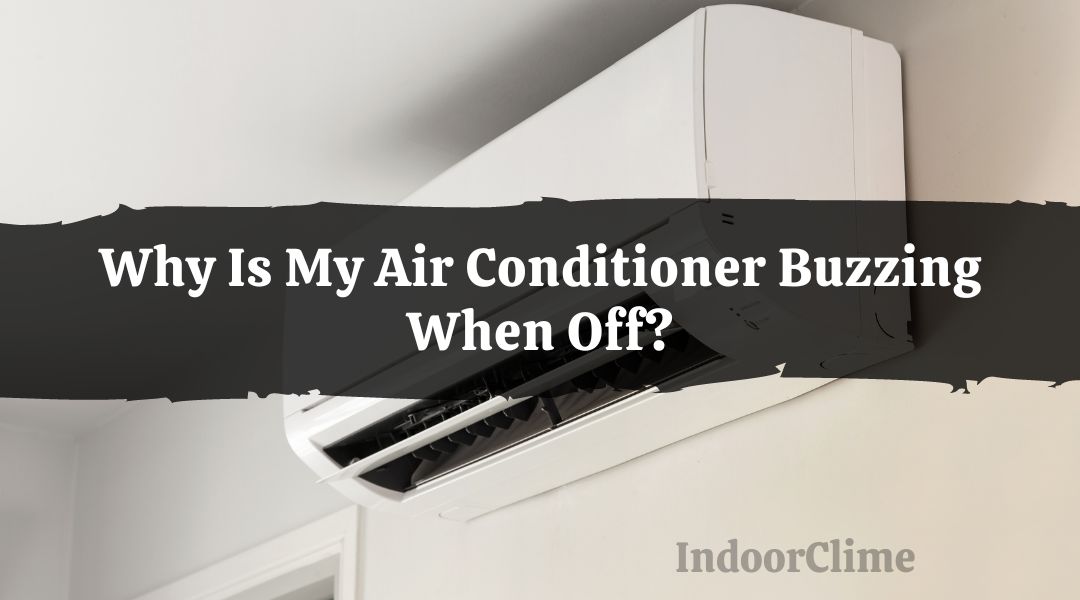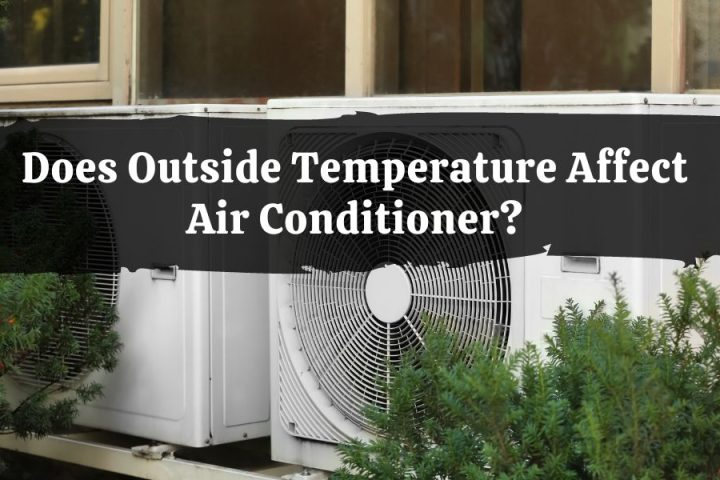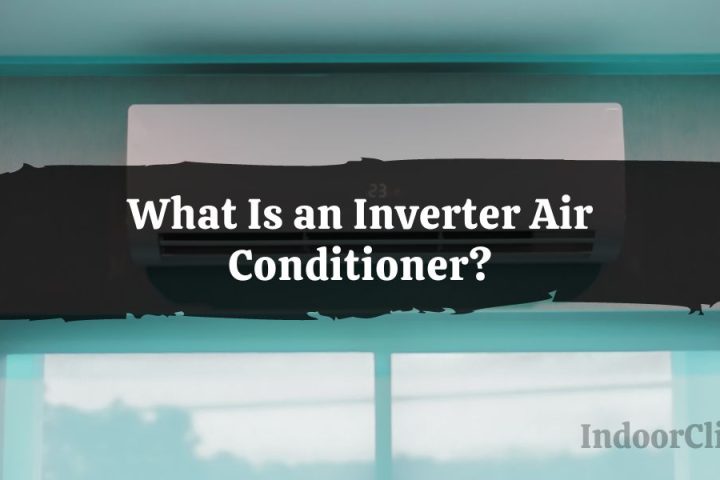There is no such thing as a completely silent air conditioner. When your air conditioner sweeps cold air into your home, you’ll often hear a gentle hum, which you may find relaxing, especially if you’re trying to fall asleep gently.
However, unexpected noises, such as a loud buzz, rattles, gurgles, and bangs, indicate something is wrong.
It’s easy to dismiss these warning signs, but the longer you leave your air conditioner running with a loud buzzing sound, the more expensive future repairs will be.
Your air conditioner is buzzing when off for reasons like a blocked outdoor fan, a clogged air filter, a frozen unit, loose parts, and other electrical issues.
Reasons Your AC Makes a Buzzing While Off
A loud rattling noise, buzzing sound, or gurgle indicates a malfunction. While your air conditioner may still work and provide cool air, it is likely inefficient.
Air conditioning systems that aren’t working correctly, especially parts like your AC compressor, use more energy and wear and tear on their components.
Any noises coming from the air conditioner should never be ignored because they could lead to more significant problems in the future.
However, there’s much more to know about your air conditioner, especially if it’s making a buzzing noise.
Electrical Issues with Your AC Compressor
Electrical problems can create your air conditioner to make a loud buzzing or humming noise when turned off.
The contactor relay switch, which interacts with the thermostat to regulate cooling, is a common problem in older air conditioners.
This low-voltage switch frequently fails, resulting in a loud buzzing noise that persists whether or not the air conditioner is turned on.
The presence of a loud buzzing sound can also indicate the presence of more serious electrical issues.
The vibrations produced by the air conditioner turning on and off can eventually loosen internal electrical connections. As a result, electrical arcing or shorts can occur due to loose connections, posing a significant fire risk.
Your Air Conditioner Is Frozen
A refrigerant leak or restricted airflow can cause freezing to the outdoor AC unit. In addition, ice build-up from refrigerant leaks can significantly reduce the effectiveness of the outside unit.
Even a broken fan motor can cause the unit to freeze, resulting in an ac humming noise as the unit tries to work despite its inability.
If you notice ice around your outside AC unit or hear a loud buzzing noise, turn off the AC unit and let it thaw.
Also, look for obvious refrigerant leaks around refrigerant piping and plants and debris around the unit as possible causes of the unit freezing.
Start your AC and listen for the loud humming sound once you’ve wholly defrosted the unit.
Condenser Fan Motor Has Been Damaged

As part of the condenser/evaporator loop, the condenser is the part of the AC unit that condenses refrigerant.
The fan motor controls moving air across the condenser coil; if it fails, your home will be filled with warm air.
A simple blockage may prevent the fan from moving if you hear a clicking noise from the fan blades. If the inside blower is working, but the fan isn’t turning, you’ll need to look into it further.
You’ll usually hear a loud humming or whistling as the motor struggles; the motor still works if the fan blades don’t turn.
Unfortunately, the longer you leave your air conditioner running, the more likely it will burn out the motor completely.
Failure of the Internal Air Conditioning Unit
Loose parts are the most common cause of a buzzing noise from your air conditioner.
In addition, the vibration from normal operations can cause components to move out of place in your AC system, with many different components working together.
When you turn on your air conditioner, a banging noise is the most apparent sign of loose parts. On the other hand, more minor details may produce a humming or buzzing noise that gets louder over time.
You’ll find the noise source if you examine your outside unit, AC compressor, and indoor blower as soon as possible.
What Do The Noises Mean?
Here are the guide and tips to help you distinguish between your air conditioner’s various noises.
Banging Noises
If your AC unit makes a banging noise, it could signify a compressor problem. This part is designed to distribute refrigerant to different parts of the HVAC system to remove excess heat from your home.
Screeching Sounds
A shrieking noise from your AC unit indicates a problem with the fan motor. A broken engine in the condenser system’s compressor could also source this noise.
Humming Noises
A faulty contactor relay switch could cause a humming noise inside your air conditioner. This component will turn on the outdoor condenser unit when it acquires a signal from your thermostat.
Buzzing Sounds
This noise could indicate that your outdoor condenser unit’s fan blades are loose or unbalanced. Issues like a faulty outdoor fan motor, dirty condenser coils, and flexible components can all cause this type of noise.
Rattling Noises
In the best-case scenario, loose sticks, dirt, or leaves in your outdoor condenser unit are causing your air conditioner to rattle.
What to Do to Stop Your Air Conditioner from Making a Buzzing Noise?

If you hear any of the AC noises listed above, a few options may work for you if you want to reduce the regular noise of your air conditioner unit.
Reduce The Amount Of Noise Outside
Sound Blanket
While we love the idea of a relaxing air conditioner, the sound blanket is placed over the compressor to muffle the noise it makes simply by doing its job.
Sound Barrier
This softens the sound of the running air conditioner, prevents debris from entering the unit, and provides a pleasing visual for the home.
Landscaping
Ensure you have a landscape maintenance plan to prevent leaves, sticks, and dirt from the shrubbery from entering the unit and causing additional issues.
Reduce The Amount Of Noise Inside
Placement of the Air Conditioner
You may want to choose a location where the noise from your AC unit will not be reflected, such as a room with brick walls.
Reflective surfaces can amplify the sound of your unit, increasing the noise level in your home.
Insulation
Add a mat to your attic unit that can absorb vibrations and sounds. This will reduce the amount of noise that enters your home.
Also, cover the air ducts with sound-absorbing foam to reduce the noise entering your home.
Inquire with the Professionals
If your AC unit is creating any of these noises, you should consult a trained, certified HVAC technician who can diagnose the problem and give you the best advice on how to fix it.






